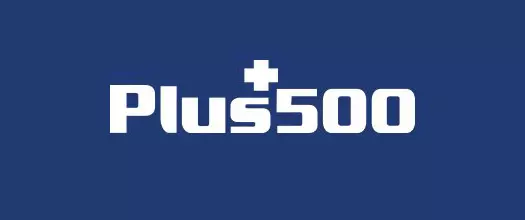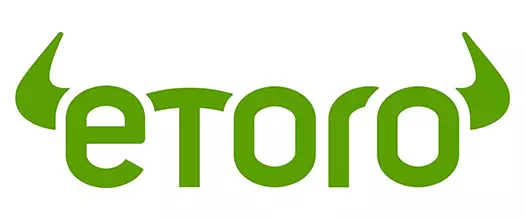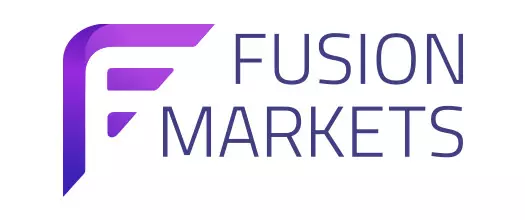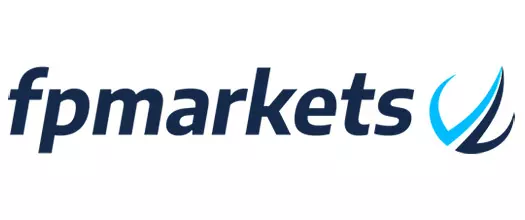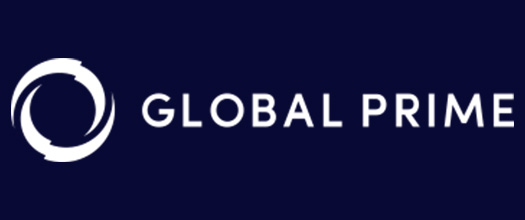- Jump to:
- Main features of the best Brazil Forex brokers
- Forex Legislation
- Financial Regulators
- Payment Methods
- Trading Software
- Mobile Trading
- FAQ
Our team of expert traders tested many regulated and trustworthy forex brokers that accept traders from Brazil and compiled a top list of the best among them. Each broker operating in Brazil received a quality score based on several factors, including its Trustpilot rating, regulation, fees and commissions, available trading platforms, customer service, and more.
 Plus500 USThis content applies only to Plus500 US and clients from the United States. Trading futures involves the risk of loss.
Plus500 USThis content applies only to Plus500 US and clients from the United States. Trading futures involves the risk of loss. eToro61% of retail investor accounts lose money
eToro61% of retail investor accounts lose money Fusion Markets74-89% of retail's CFD accounts lose money
Fusion Markets74-89% of retail's CFD accounts lose money FP Markets73.85% of retail investor accounts lose money
FP Markets73.85% of retail investor accounts lose money Global Prime74-89% of retail CFD accounts lose money
Global Prime74-89% of retail CFD accounts lose money Pepperstone75.5% of retail investor accounts lose money
Pepperstone75.5% of retail investor accounts lose money
Our team has thoroughly evaluated all brokers listed below using TradingPedia’s exclusive methodology.
Main features of the best Brazil forex brokers
- Brand
- Trading platforms
- Minimum deposit
- Regulations
- Trading instruments
- Spreads
- Leverage for Forex CFDs
- Leverage for Crypto CFDs
- Leverage for Indices CFDs
- Deposit methods
- Withdrawal Methods
- Commission per Lot
- Contact details
Finding a good, reliable forex broker in Brazil may be a daunting task for most traders due to the specific legal environment and the peculiar nature of the market. Until relatively recently, the South American country had strict controls that made trading on the equity markets practically impossible for retail traders. With its new stance, however, the authorities are now allowing access to the largest stock exchanges in the world, as well as the highly popular, decentralised foreign exchange market.
The foreign exchange market (forex) is extremely regulated in Brazil, but forex trading is becoming popular among local investors as the country is now heading towards a more open and liberal regime. This is great news for all investors in the largest economy in South America, which is known for its rainforests, rich natural resources, and the amazing Rio Carnival. With its population of 209.3 million, Brazil is also the largest Portuguese-speaking country in the world. Brazil is among the largest agricultural producers and exporters in the world and, with a nominal gross domestic product of over $2 trillion, its economy ranks ninth globally.
Forex legislation in Brazil
It is legal to trade on the foreign exchange market in Brazil, but only a few online brokers are based in the country. To access the forex markets, Brazilian traders need to find reliable online brokers – most leading international brokers accept Brazilian clients and provide Portuguese-language websites and customer support. It is also more convenient to work with a broker that accepts deposits in Brazil’s local currency, the real (BRL).
In fact, traders based in Brazil are required to have a trading account in BRL to access the forex market. Those who have an account in a foreign currency are allowed to trade only in certain circumstances. Traders are advised to register with a broker licensed by the Central Bank of Brazil, or Banco Central do Brasil (BCB). However, there is no requirement for FX brokers to hold local BCB licences.
Until 2005, traders in Brazil were allowed to execute trades only if they had been authorised in advance by the Central Bank. Each forex contract was closely monitored by the BCB, which made this otherwise easy and instant type of trading extremely complex and cumbersome. Most traders were put off by the unfriendly environment and clumsy administration. In 2005, however, forex trading regulations were relaxed with the passing of CMN Resolution 3265, which was then modified by Resolution 3568 in 2008.
According to these amendments, legal entities and individuals are allowed to purchase and sell foreign currency and perform international transfers of any nature, provided they are denominated in the Brazilian currency. Investors can trade forex pairs without having to obtain prior authorisation from the BCB. There is also no limitation on the amount traded if the counterparty in the contract is an agent authorised by the BCB.
There are certain regulations traders must comply with, however. First and foremost, each operation in the foreign exchange market is recorded in the Information System of the Central Bank of Brazil (Sisbacen). In addition, most forex operations can be freely cancelled upon agreement between the parties. The BCB provides simplified forms for recording transactions of up to $3,000. Simplified and interbank operations, however, cannot be cancelled, written off, amended, or closed by early settlement. Several things are not allowed in forex contracts, namely: changing the identity of buyers and sellers, changing the value in BRL, the currency code, or the foreign exchange rate.
Brazil’s financial regulators
The financial sector in Brazil is controlled and regulated by several authorities. One of them is the Banco Central do Brasil, or the Central Bank of Brazil (BCB). This is the main monetary authority of the country and it is responsible for Brazilian monetary policy. In addition, it is the authorising institution in the country, although offshore online brokers are not required to hold licences from the BCB. The Ministry of Economy also supervises the entire sector.
The main regulatory body for the capital markets in Brazil is the Securities and Exchange Commission of Brazil (Comissão de Valores Mobiliários, or CVM). It was established in 1976 and is an independent agency under the Ministry of Economy. As the primary securities-market authority in the country, the CVM regulates all participants in the capital markets, including stock exchanges, public companies, financial intermediaries, and investors.
Through policy development and regulation, the CVM aims to guarantee that all trades are fair. It also ensures that no price manipulation or insider trading occurs and that traders are protected against illegal practices and manipulation of the markets to create artificial conditions of supply or demand. The agency must ensure the efficient operation of the stock and OTC markets, as well as full compliance with the regulatory framework and all rules set by the National Monetary Council.
Forex payment methods in Brazil
Brazilian traders have access to some of the most popular payment options in the world, including credit cards and digital wallets. The country also has local payment services that allow Brazilians to pay easily online or in-store in BRL. However, the online-payments market is relatively restricted by law and only a few local banks dominate it.
Consumers are charged an additional tax of 6.38% if they purchase goods or services from foreign websites. This is the so-called IOF tax and it applies to all international transactions. In addition, forex trading is permitted only to Brazilians with BRL accounts in local banks. For this reason, most traders prefer using domestic payment options rather than international ones.
Of course, credit and debit cards by Visa, Mastercard, and American Express are available, although they are mostly issued by local banks and are in BRL. Interestingly, only 20% of Brazilians have access to international credit/debit cards. Various e-wallets can also be used in the country, including PayPal, ecoPayz, Skrill, and Neteller.
In addition, brokers that target Brazilian clients should offer MercadoPago, an online payment platform and e-wallet owned by the Argentine e-commerce company Mercado Libre. The e-wallet can be used by Argentine and Brazilian traders even on brokerages’ websites that offer only PayPal. This was made possible after PayPal and the Argentine company signed a partnership deal.
The leading payment method in the country, however, is Boleto Bancário, a push-payment system created in 1993 by Brazilian fintech company PagBrasil. Boleto transactions account for approximately a quarter of all online payments in Brazil. It allows individuals to make online purchases and pay for them over the internet, via online banking, or in cash at any bank branch, at ATMs, or authorised processors – these include more than 13,000 lottery agencies, pharmacies, and supermarkets.
Popular trading software in Brazil
When looking for a trusted forex broker online, traders in Brazil should take into consideration the particular trading platforms offered by each brokerage firm. The best brokers on the market provide their clients with at least two or three different platforms, suitable for investors of varying levels of experience. Some brokers also offer proprietary software that has been developed with specific types of trading or certain countries in mind.
What traders should look for is a platform that gives them access to the markets and instruments they wish to trade – whether these are forex, CFDs (contracts for difference), futures, commodities, company stock, indices, etc. Good trading platforms also have user-friendly software, full compatibility with different devices and operating systems, as well as quick execution of orders. Less-experienced investors should look for a trading platform that comes with a wide range of educational tools, copy-trading functions, and demo accounts that allow no-risk trading. Some trading platforms also feature advanced analytical tools, high-functioning charts, dozens of technical indicators, and many more features.
Several types of trading software are well known among traders and are offered by the vast majority of online forex and CFD brokers. One of them is the MetaTrader 4 platform, released in 2005 by MetaQuotes Software and designed specifically for forex and futures trading. Although the platform is now 15 years old, it remains the most popular software solution for online retail foreign-exchange speculative trade.
It is user-friendly, available in multiple languages, including Portuguese, and can be used on all devices, including PC, Mac, Android, and iOS. Moreover, MT4, as it is also known, is flexible and fully customisable, allowing traders to add or remove different technical indicators. The platform offers algorithmic trading, advanced technical analysis, web trading for those who do not want to download the software on their computer, and trading robots, also known as Expert Advisors.
While MT4 is perfect for forex and CFD trading, it has limited capabilities when it comes to full-time trading on stock exchanges. This is why some traders prefer the seemingly similar MetaTrader 5. Although it was developed by the same company and does resemble MT4, MT5 is quite different, as it focuses on trading in stocks. The trading terminal was released in 2010 to offer traders access to the largest stock exchanges around the world. Now, Brazilian traders can use it for trading equities, forex, and indices, while taking advantage of advanced technical and fundamental analysis, a multicurrency strategy tester, trading robots, social trading, and many more.
Other popular trading platforms include cTrader, TradingView, TradeStation, and NinjaTrader, and each one comes with its own strengths and limitations. To choose a platform, traders should start with a free demo account and test its functionality and various features. Even better, they can use several platforms at once, as long as they choose a reliable, experienced broker who offers good trading conditions such as low spreads, competitive fees, and client-fund protection.
Mobile trading in Brazil
Forex trading is constantly changing, becoming more accessible and convenient than ever before. The development and recent surge of mobile technologies in the past decade have greatly contributed to this change in the trading experience. Traders can now access global markets, track their orders, and receive constant news updates on their mobile devices.
The flexibility and convenience of mobile trading have become extremely important in recent years – forex markets are, after all, open 24 hours a day and, although trade is normally closed for retail traders over the weekend, trading still takes place among central banks and other financial institutions. An increasing number of brokers now give their clients the option to trade on weekends, even if only a limited number of instruments and forex pairs are usually available. Consequently, traders who can instantly open their trading accounts from their phones gain an advantage.
To be able to trade on the go, investors in Brazil should find a suitable forex broker that offers mobile trading. Of course, they need to own a mobile device such as an iPhone, iPad, Android phone or tablet, or even less-popular devices such as BlackBerry (finding trading apps for these phones, however, could be a challenge). For instant execution and effortless trading activity, users also need to make sure they have a strong and stable Wi-Fi connection. Then, they simply find the app on the website of the broker with which they have signed up or on Google Play and Apple’s App Store.
The vast majority of trading apps are free to download and install, with the installation process typically taking up to two or three minutes. In addition, some of the best apps give free and easy access to market news, price quotes, and charting. Traders should also opt for an application that has a user-friendly, intuitive interface and performs quickly, since quotes can change within seconds – the major currency pairs are highly volatile and vulnerable to economic news 24 hours a day.
